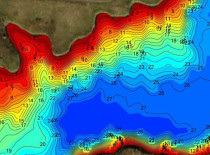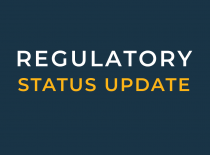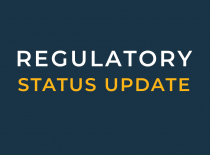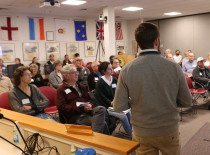All Posts
The Cape Cod Commission is exploring whether a Transportation Management Association (TMA) could help address the region’s growing mobility challenges, including seasonal congestion and workforce transportation needs, as well as the anticipated impacts of the upcoming replacement of the Sagamore and Bourne bridges.
With major infrastructure projects approaching and travel patterns continuing to evolve, regional partners are considering new tools that can improve mobility, support economic development, and better coordinate services across Cape Cod.
Across the region, efforts to collect and compile pond data are expanding. One of the most significant data gaps in fully assessing pond health is bathymetry, the measurement of the depth and shape of a water body’s bottom, essentially, an underwater topographic map. Bathymetric data describe how deep a pond is at various locations, the contours of the pond floor, and changes in depth that influence how water moves and mixes. To address this need, the Cape Cod Commission is initiating a project to survey bathymetry in approximately 30 ponds across the region.
The Cape Cod Commission is a pre-qualified planning service provider through the Massachusetts Broadband Institute's (MBI) Municipal Digital Equity Planning Program for the 15 towns of Barnstable County. Through this program, the Commission assisted the towns of Bourne, Sandwich, Orleans, Falmouth, and Barnstable in developing municipal digital equity plans, roadmaps for ensuring that all residents have access to the devices, connectivity, and skills needed to participate fully in today's digital society.
MBI invited towns with completed digital equity plans to apply for one-time grants of up to $100,000 through the Municipal Digital Equity Implementation Program to carry out projects identified during the planning process. All five participating towns received awards and are now moving forward with implementation.
A status on projects currently under review by the Cape Cod Commission.
The Cape Cod and Islands Water Protection Fund Management Board took final action to advance eight clean water infrastructure projects in six Cape Cod towns this week. The Board previously approved conditional subsidies for eligible projects included on the Massachusetts Department of Environmental Protection’s Clean Water Intended Use Plans in 2023 and 2024.
This Regulatory Update provides a status on projects currently under review by the Cape Cod Commission. Visit www.capecodcommission.org/regulatory for a full overview of our Regulatory program and answers to frequently asked questions.
The Executive Office of Housing and Livable Communities is working to finalize the regulations for implementing the Seasonal Communities Act. Cape Cod Commission staff recently submitted comments on the draft regulations, recommending clear alignment between definitions of primary residence, greater specificity around how municipalities should approach zoning for undersized lots, and a more consistent minimum occupancy requirement that reflects the intent of year-round housing.
For the past three years, the Cape Cod Commission and the Association to Preserve Cape Cod have collaborated on the Cape Cod Regional Pond Monitoring Program (RPMP), an effort to collect consistent data from 50 representative ponds across the region. Since the spring of 2023, monitors, including hundreds of volunteers, have made nearly 1,000 visits to ponds, collecting almost 3,000 samples. Now, at the end of its initial three-year run, the program has brought new insight, new capabilities, and a new level of community involvement to understanding pond health across Cape Cod. Now, the Commission is seeking to expand the program and continue it for years to come.
The 2025 Regional Policy Plan (RPP) serves as the foundation for local and regional planning and regulation across Cape Cod. Updated every five years, the RPP guides development and resource protection across the region, ensuring that Cape Cod’s natural, built, and community systems remain in balance.
For the past year, the Commission has been engaged in a process to update this document, holding public hearings, stakeholder meetings, and focus groups, and conducting surveys to ensure it aligns with the region's needs. The Cape Cod Commission approved the updated RPP in October and it will soon be adoped as a Barnstable County ordinance.
In December 2024, the Cape Cod Commission partnered with the Town of Eastham to develop a municipal climate action plan. Building on the Cape Cod Climate Action Plan, this effort designs regional strategies tailored to Eastham’s unique needs, priorities, and environmental conditions. The project is now nearing completion.










